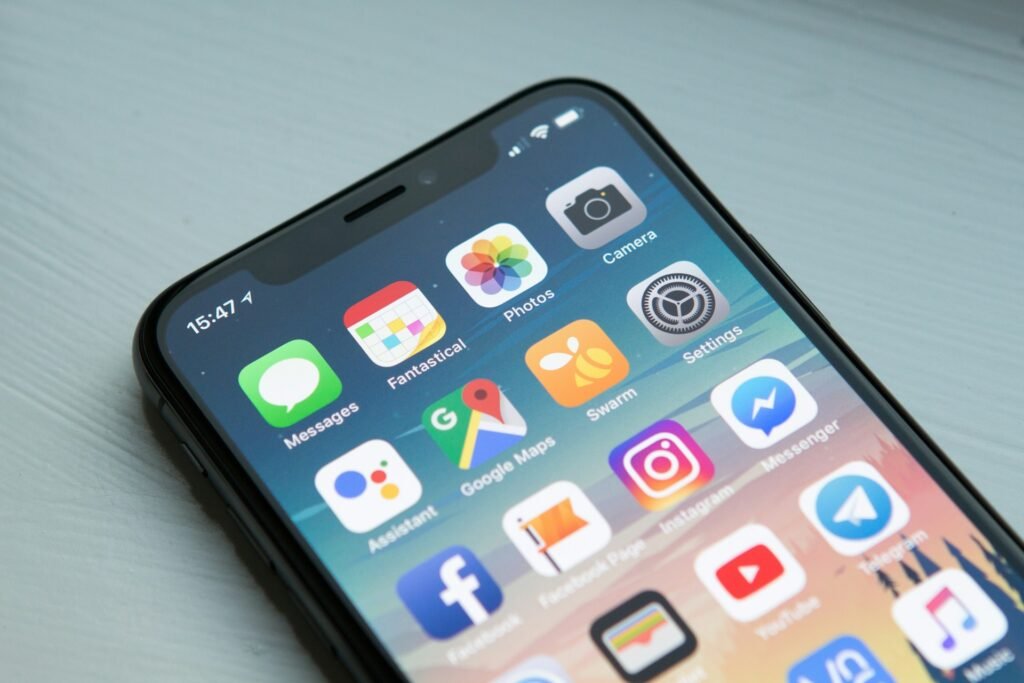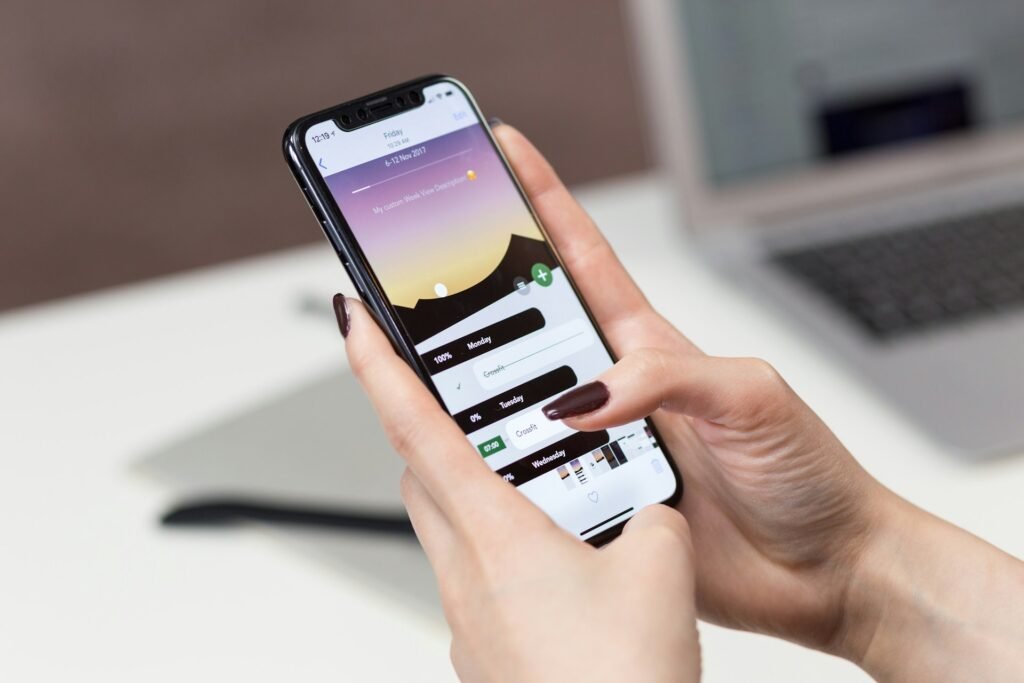
Table of Contents
Overview
Mobile phones, once simple tools for communication, have evolved into multifaceted devices integral to our daily lives. With the advent of smartphones, they now serve as sources of information, entertainment, and essential utilities.
A Brief History of Phones
Since Alexander Graham Bell’s first telephone in 1876, telecommunication has undergone dramatic changes. The 1980s saw the rise of portable phones, with Motorola launching the first commercial handheld mobile phone, the DynaTAC 8000x, in 1983. We’ve progressed from the First.Generation System (1G) to the Fifth Generation System (5G), making mobile phones indispensable in modern communication.
Applications and Benefits of Mobile

Smartphones have overtaken traditional mobile systems, especially in developed regions, offering a myriad of uses:
- Communication: Keeping in touch with family, friends, and colleagues.
- Business: Facilitating business operations and communications.
- Emergency: Providing access to help in emergencies.
- Entertainment: Playing games, listening to music, and watching movies.
- Internet and Information: Browsing, online shopping, and accessing information.
- Mobile Banking: Managing finances on the go.
The Dependency on Mobile Phones
While technology enhances our lives, our dependence on phones has grown significantly. We use them for various daily tasks, from managing schedules to staying connected. However, this dependency has its downsides.
Negative Impacts of Mobile
1. Social Life Disruption:
- Interruptions: Mobile phones often disrupt social and professional interactions, leading to divided attention and reduced efficiency.
- Loss of Personal Touch: The convenience of digital communication has diminished face.to.face interactions, affecting family time and personal relationships.
2. Effects on Children and Adolescents:
- Addiction: Excessive use of mobile phones for games and social media affects reading time, sleep, and overall development.
- Exposure to Inappropriate Content: Easy access to inappropriate content can have a lasting negative impact on young minds.
3. Health Risks:
- Physical Health: Overuse of mobile phones is linked to migraines, weak eyesight, chronic fatigue, and even serious conditions like tumors and cardiac problems.
- Mental Health: Excessive use can lead to mental health issues like insomnia, anxiety, and addiction.
4. Impact on Wildlife:
- Mobile phones impact wildlife in several ways. The construction and maintenance of cellular networks lead to habitat destruction and fragmentation. Electromagnetic radiation from cell towers may affect animal navigation, breeding, and communication, especially in birds and insects. Increased human presence due to mobile technology also leads to disturbances in natural habitats, causing stress and behavioral changes in animals. Additionally, improper disposal of mobile phones contributes to environmental pollution, affecting both terrestrial and aquatic ecosystems. Overall, while mobile phones facilitate human communication, their environmental footprint poses significant threats to wildlife and biodiversity.
- Bird Population Decline: Electromagnetic radiation from mobile phones and towers is harmful to birds, causing a decline in their population.
5. Road Accidents:
- Mobile phones play a significant role in road accidents due to driver distraction. Texting, calling, or using apps while driving diverts attention from the road, leading to delayed reaction times and impaired judgment. This distraction increases the likelihood of collisions, as drivers may miss traffic signals, fail to notice other vehicles, or lose control of their vehicles. Hands-free devices also contribute to cognitive distraction, where drivers are mentally preoccupied. Studies show a strong correlation between mobile phone use and road accidents, prompting stricter regulations and awareness campaigns to mitigate this risk and promote safer driving practices.
Positive Aspects of Phones
1. Communication and Connectivity:
- Mobile phones have revolutionized communication, enabling instant connectivity regardless of location. This has bridged gaps between people across the globe, allowing for seamless conversations through calls, text messages, and video chats.
- They facilitate staying in touch with family, friends, and colleagues, making it easier to maintain personal and professional relationships.
2. Access to Information:
- Mobile phones provide instant access to a vast array of information through the internet. This includes news, educational content, and various online resources, empowering users with knowledge on diverse topics.
- Educational apps and platforms offer learning opportunities, enabling people to acquire new skills and knowledge at their convenience.
3. Emergency Assistance:
- Mobile phones are crucial in emergencies, allowing users to quickly contact emergency services like police, fire departments, or medical help. This immediate access can save lives and provide timely assistance during critical situations.
- Location-tracking features help in locating and aiding individuals in distress, enhancing overall safety.
4. Business and Productivity:
- Mobile phones enhance productivity by providing tools for managing schedules, setting reminders, and accessing work-related documents on the go. This flexibility supports remote work and improves efficiency.
- Business communication is streamlined through emails, messaging apps, and video conferencing, facilitating smoother operations and decision-making processes.
5. Social Interaction and Networking:
- Social media apps on mobile phones enable users to connect, share, and engage with others, fostering social interactions and networking opportunities. This has created platforms for discussions, collaborations, and community building.
- Professional networking apps help individuals expand their professional connections, aiding in career growth and opportunities.
6. Entertainment:
- Mobile phones provide a wide range of entertainment options, including streaming services, games, music, and e-books. This accessibility to entertainment helps users relax and unwind during their leisure time.
- They also offer platforms for content creation, allowing users to express their creativity and share it with a global audience.
7. Financial Transactions:
- Mobile banking and payment apps have simplified financial transactions, enabling users to manage their finances, pay bills, and transfer money conveniently and securely.
- These services promote financial inclusion, allowing people in remote areas to access banking facilities without the need for physical banks.
8. Navigation and Travel:
- GPS and navigation apps on mobile phones provide real-time directions, helping users navigate unfamiliar places with ease. This is particularly useful for travelers and daily commuters.
- Travel apps offer information on transportation options, accommodations, and local attractions, enhancing the overall travel experience.
9. Health and Fitness:
- Mobile phones support health and fitness through various apps that track physical activity, monitor health metrics, and provide workout routines. This encourages users to maintain a healthy lifestyle.
- Telemedicine apps enable remote consultations with healthcare professionals, making medical advice and care more accessible.
10. Photography and Documentation:
- High-quality cameras on mobile phones allow users to capture photos and videos effortlessly, documenting important moments and creating lasting memories.
- These features support content creation for personal, professional, and social media use, democratizing the ability to produce visual content.
How Over dependency hamper our social life
In a way, mobile phones have become a constant source of interruptions in our lives. Whether it is a family get together, any professional meeting attending a Programme, our mobile phones can ring anywhere. These regular interruptions lead to divided attention and an individual cannot give his best to a single activity he is involved in at that moment. This annoys the other people and lowers the efficiency of the individuals.

Mobile phones have dehumanised the dynamics of human contact. The essence of personal touch is lost in today’s tech-savvy world. People have confined themselves to the world of mobile and have forgotten how to interact in real life anymore.
The face-to-face communication has taken a back seat. Gone are the times when the family used to sit together for the dinner and that strictly used to be the family time. The instant messaging and social media applications have become the favourite past time of the most of the people across all the age groups. Some people become completely disinterested in spending time with their families.
Conclusion
While mobile are essential in today’s world, it’s crucial to use them wisely. Over.dependence can lead to negative consequences, much like any addiction. Striking a balance between utilizing their benefits and avoiding excessive use is key to maintaining a healthy digital lifestyle.
There is no doubt that mobile devices are an absolute necessity in today’s time. Still, the extent to which these are to be allowed to invade our lives is in the hands of an individual. We need to make an optimal use of the mobile devices to reap the maximum benefits out of it.
1. What are the primary benefits of using mobile ?
Mobile phones offer a wide range of benefits, including:
Communication: Instant connectivity with family, friends, and colleagues through calls, texts, and video chats.
Convenience: Managing tasks such as setting alarms, scheduling meetings, and conducting business.
Entertainment: Access to games, music, movies, and books.
Information: Internet browsing, online shopping, and accessing information on the go.
Safety: Quick access to help in emergencies and staying connected with loved ones.
2. How have mobile phones evolved over time?
Mobile phones have evolved significantly since Alexander Graham Bell’s first telephone in 1876. Key developments include:
1980s: Introduction of portable phones.
1983: Motorola launched the first commercial handheld mobile phone, the DynaTAC 8000x.
Generations: Progression from the First-Generation System (1G) to the Fifth Generation System (5G), enhancing connectivity and functionality.
3. What are the main benefits of using mobile phones?
Mobile phones offer numerous benefits, including:
Convenience: Easy management of daily tasks like setting alarms, scheduling meetings, and conducting business.
Connectivity: Instant communication with family, friends, and colleagues through calls, texts, and video chat
Entertainment: Access to games, music, movies, and books.
Information: Internet browsing, online shopping, and access to a vast amount of information.
Safety: Quick access to help in emergencies and the ability to stay connected with loved ones.
4. What health risks are associated with excessive mobile phone use?
Excessive mobile phone use can lead to various health issues, such as:
Physical Health: Migraines, weak eyesight, chronic fatigue, infertility, cardiac problems, and tumors.
Mental Health: Insomnia, anxiety, addiction, and potential links to Alzheimer’s disease.
5. How do mobile phones impact wildlife, particularly birds?
Electromagnetic radiation from mobile phones and towers can harm wildlife, especially birds. Studies show that this radiation can:
Reduce Bird Populations: Damage bird eggs and embryos, leading to a decline in bird populations.
6. How do mobile phones contribute to road accidents?
Mobile phones are a major cause of road accidents due to:
Distracted Driving: Using phones while driving leads to reduced attention, causing accidents, injuries, and fatalities.
7. Can mobile phones be used to improve productivity and safety?
Yes, mobile phones can enhance productivity and safety by:
Productivity: Offering tools for managing schedules, conducting business, and accessing information quickly.
Safety: Providing a means to reach out for help in emergencies and stay connected with loved ones.






